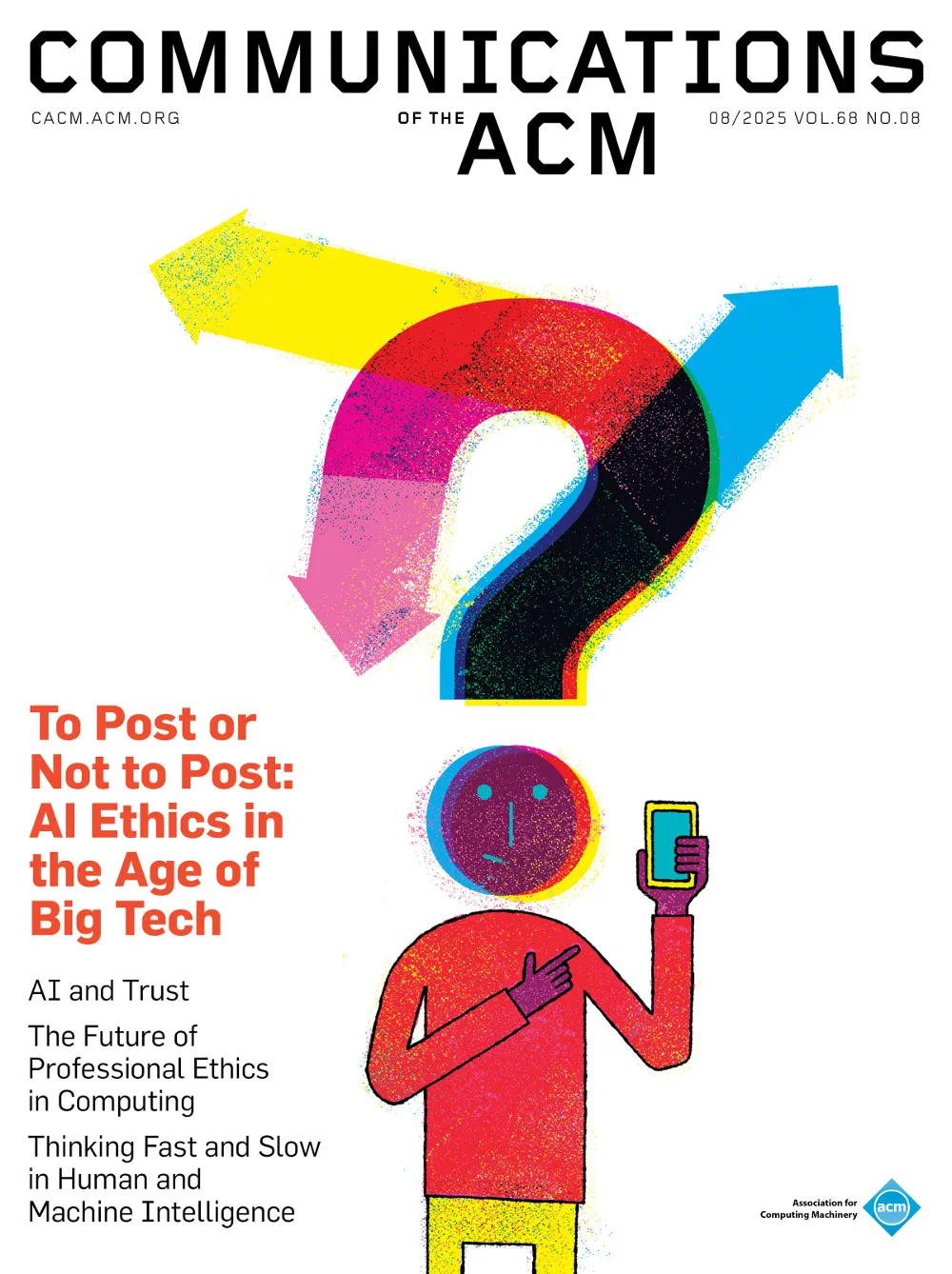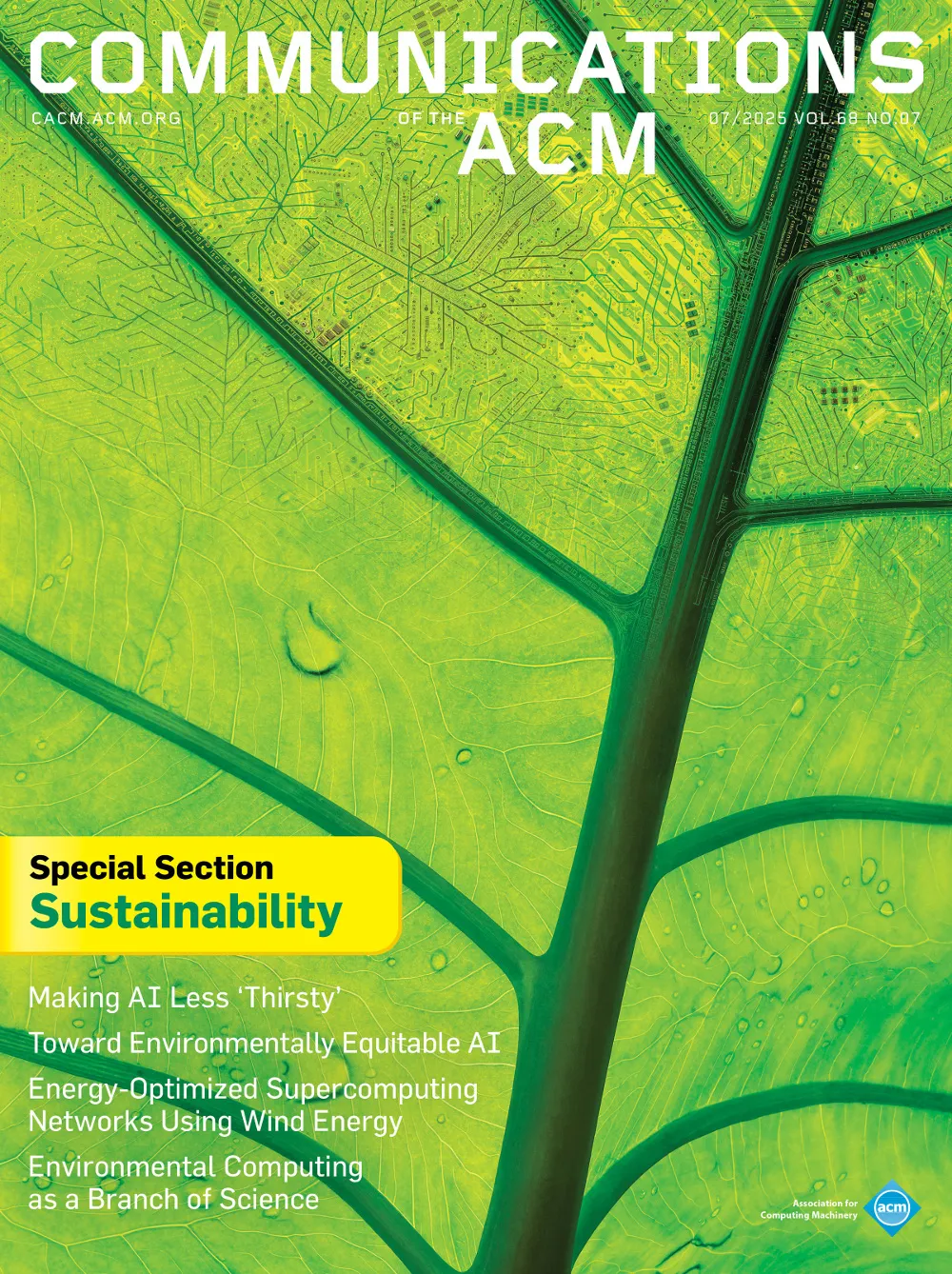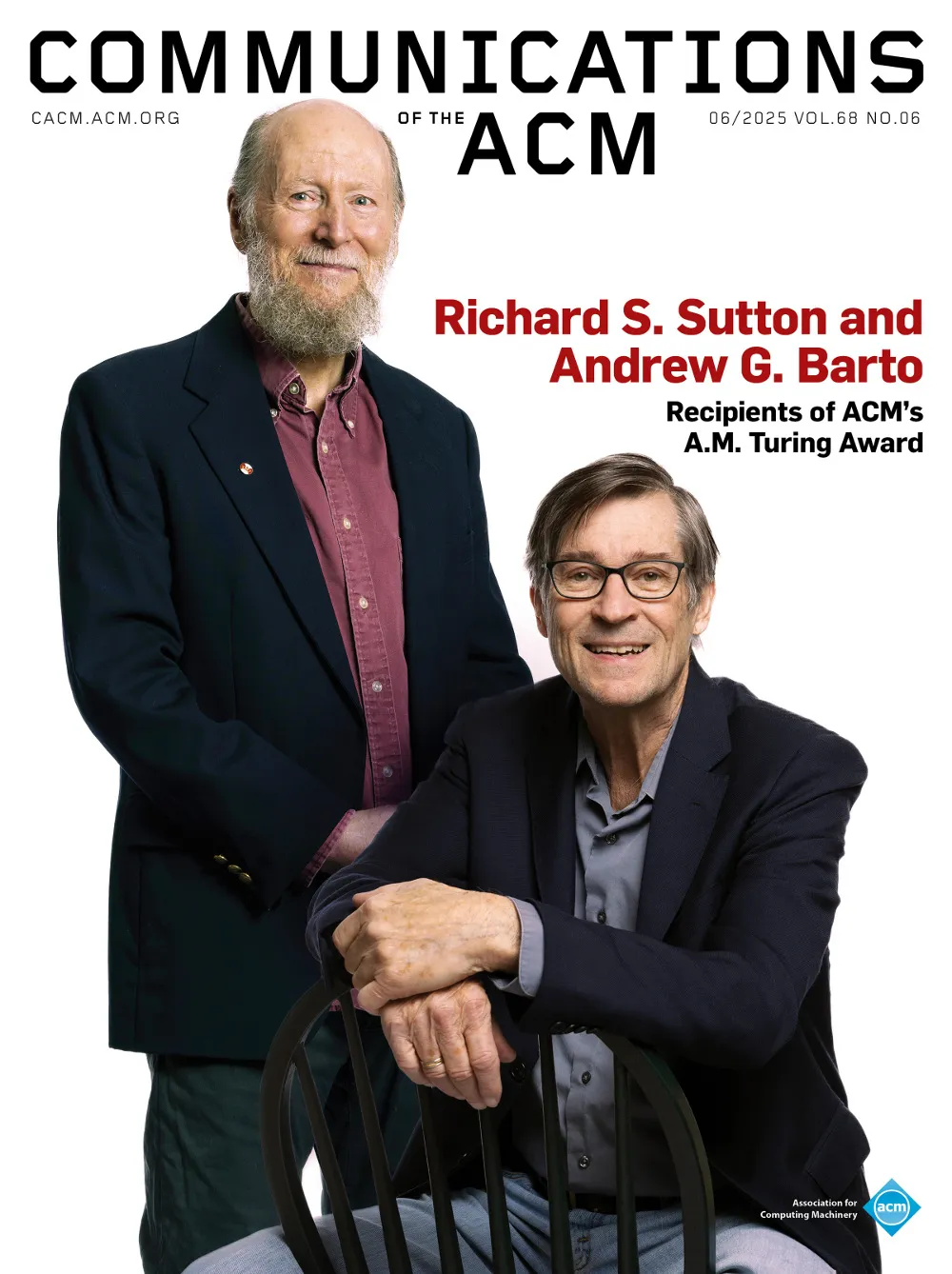Dispelling Common Myths About ACM Awards and Honors
August 2019 - Vol. 62 No. 8

Features
Opinion From the president
Have you wondered why a person you admire has not received an ACM award? As a former ACM Awards Chair, I'd like to share some insights on what makes nominations effective.
Opinion Cerf's up
Some actions or decisions are irreversible. We would do ourselves a great favor if we were to design our digital systems to the maximum extent possible to avoid irreversible traps.
Opinion Letters to the editor
A Case Against Mission-Critical Applications of Machine Learning
In their column "Learning Machine Learning" (Dec. 2018), Ted G. Lewis and Peter J. Denning raised a crucial question about machine learning systems.
Cutting the Wait For CS Advice
Mark Guzdial suggests ways to cut the long lines for college students seeking to meet with their computer science advisors.
The Algorithm That Changed Quantum Machine Learning
A college student discovered a classical computing algorithm that experts overlooked. It promises to change both classical and quantum machine learning.
Opinion Education
Block-based Programming in Computer Science Education
Considering how block-based programming environments and tools might be used at the introductory level and beyond.
Opinion Economic and business dimensions
A Response to Fake News as a Response to Citizens United
How boundaries on speech could free the market for speech.
Opinion Viewpoint
The Success of the Web: A Triumph of the Amateurs
Connecting the unique factors that influenced the origination and subsequent development of the World Wide Web.
Industry-Scale Knowledge Graphs: Lessons and Challenges
Five diverse technology companies show how it's done.
Research and Advances Contributed articles
Embedded EthiCS: Integrating Ethics Across CS Education
A Harvard-based pilot program integrates class sessions on ethical reasoning into courses throughout its computer science curriculum.
Research and Advances Contributed articles
Scaling Static Analyses at Facebook
Key lessons for designing static analysis tools deployed to find bugs in hundreds of millions of lines of code.
Research and Advances Review articles
Activity-Centric Computing Systems
The ability to build a construct that organizes work from different devices and information resources is as complex as it is invaluable.
Research and Advances Review articles
Tracing the tangled web of unsolicited and undesired email and possible strategies for its demise.
Research and Advances Research highlights
Technical Perspective: The True Cost of Popularity
The main focus of "Heavy Hitters via Cluster-Preserving Clustering" by Kasper Green Larsen et al. is on building up sufficient information to allow a more effective search process.
Research and Advances Research highlights
Heavy Hitters via Cluster-Preserving Clustering
We develop a new algorithm for the turnstile heavy hitters problem in general turnstile streams, the EXPANDERSKETCH, which finds the approximate top-k items in a universe of size n using the same asymptotic O(k log n) words of memory and O(log n) update time as the COUNTMIN and COUNTSKETCH, but requiring only O(k poly(log n)) time to answer queries instead of the O(n log n) time of the other two. The notion of "approximation" is the same l2 sense as the COUNTSKETCH, which given known lower bounds is the strongest guarantee one can achieve in sublinear memory. Our main innovation is an efficient reduction from the heavy hitters problem to a clustering problem in which each heavy hitter is encoded as some form of noisy spectral cluster in a graph, and the goal is to identify every cluster.
Opinion Last byte
In trying to "drown" the opposition with daily online elections, I didn't realize they could wash me away.























